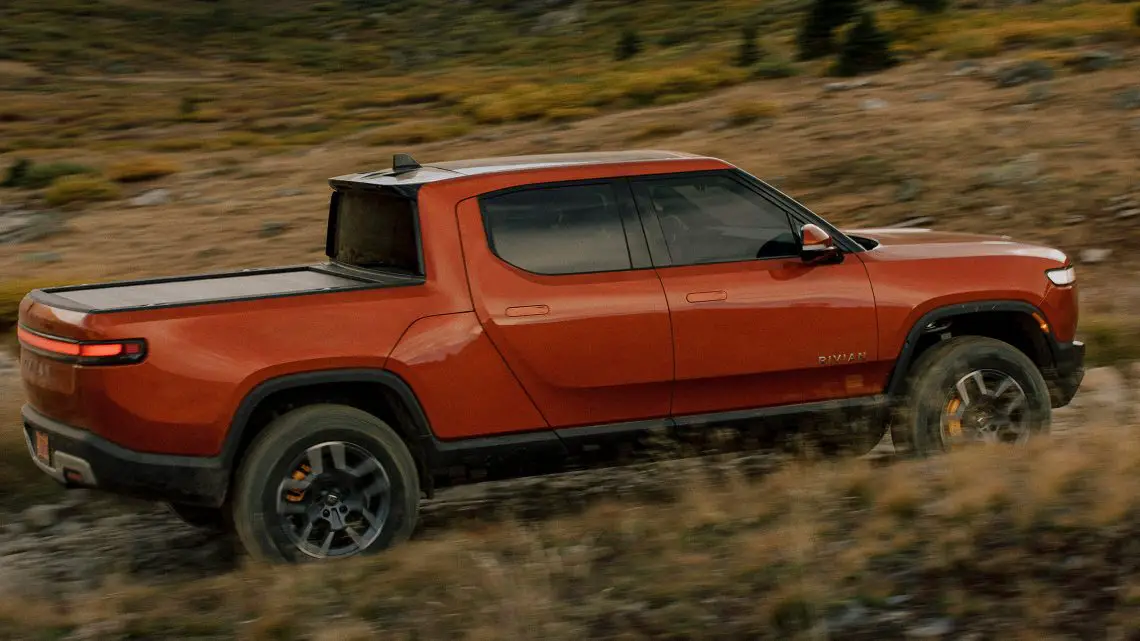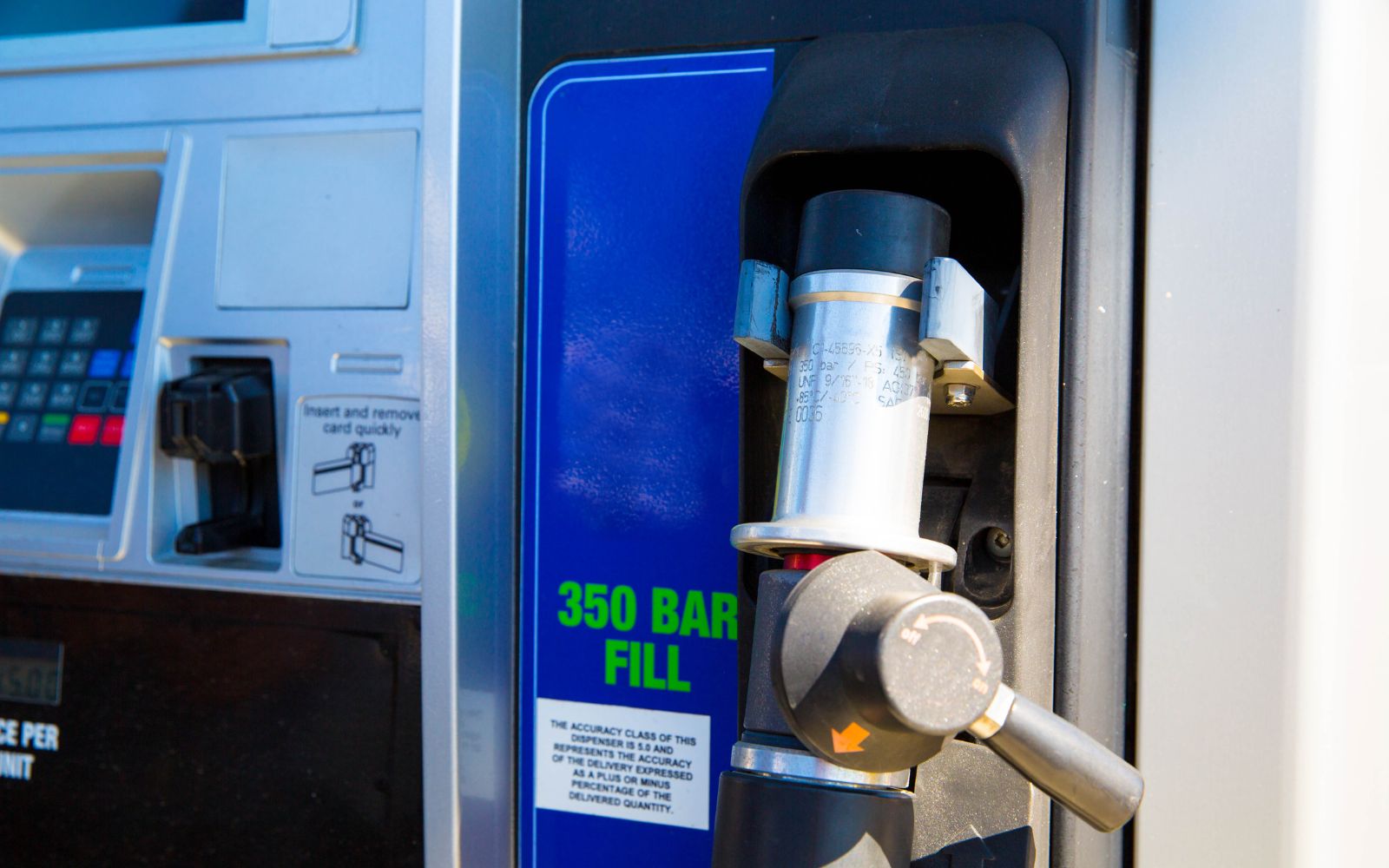
Battery Powered Pickup Trucks – The Proof is in the Pulling
December 21, 2021The potential of battery powered pickup trucks has been explored recently, with the new Ford F150 Lightning being one of the latest additions. However, the highway range of such vehicles when towing is insufficient, making hydrogen-power a more feasible option. Tests on the Rivian, which completed a heavy tow of 2700 miles, revealed that the estimated towing range for battery-powered pickups is not enough. This highlights how hydrogen power may be the only practical solution for heavy-duty vehicles such as big rigs, and could become vital as we develop zero-emission commercial aircraft.
A look back at the Ford F150 Lightning
In a June 1, 2021 HFN article I looked at the new Ford F150 Lightning, a battery-powered F150 pickup with excellent potential but a highway range too short for useful towing. We encouraged Ford to consider powering it with hydrogen to resolve that deal-breaker. A hypothetical “LightningH” could run a thousand miles on hydrogen, 500 when towing. That article and others expanding on the concept are available at Hydrogen Fuel News’ Bob Meyer.
Since the article was released, other battery-powered trucks are emerging at a surprising pace. Because Ford’s Lightning will carry a literal ton of batteries and that’s about all that can be handled by a half-ton pickup, they’ll all have about the same range. The first of this new vehicle category, the Rivian, recently completed a heavy tow of 2700 miles. That’s an excellent test of a battery-powered pickup.
How did its towing range compare with our June estimate for the battery powered Lightning? As predicted, it’s just too short.
During the 2700-mile test run, the Rivian averaged 100 miles between recharge stops. That’s less than estimated in my June article, but squeezing out the last few dozen miles turned out to be a nail-biter in practice. The driver found himself scanning ahead constantly, organizing the entire trip by distance to the next charger. A partial charge every hundred miles (typically taking the battery state from 15% to 80% to avoid slow-charging the remainder) set the truck’s realistic towing range.
He stopped to recharge 28 times during the trip! A quick summary of the adventure is available at Rivian R1T Successfully Tows 2,700 Miles Cross Country: Report.
The bottom line? It’s identical to the June article: A battery powered pickup may be fine around town but won’t meet the tougher expectations of most drivers. We take long trips in our conventional F150, towing a travel trailer. Our gasoline-powered range is reduced by half, but at 300+ miles it’s still fine. At that point I need a few minutes anyway, to empty while the truck fills. 😉
A hydrogen-powered LightningH will do even better than my gasoline-powered machine.

How about hydrogen refueling concerns? The second of the linked HFN articles calculates that just 100 hydrogen-fueling locations, placed strategically around the U.S., should do well as a “starter network” supporting ten thousand H-trucks. Ford could easily build that network as part of the LightningH release – Congress just allocated money to help with this sort of thing. But: The most important aspect of the Rivian’s “Proof is in the pulling” run is this: While battery-electric cars around town (and for moderate highway use) will be fine, pickup trucks performing at the max are just too much for batteries to handle. And, for the big rigs hauling our supplies over the Interstates, hydrogen looks to be the only practical solution. This limit will become even more apparent as we develop zero-emission commercial aircraft. A thousand tons of batteries in a Boeing 787 just won’t fly.It is suddenly obvious via this single test run that we’ll need both battery and hydrogen energy to provide climate-friendly transportation for the planet.– BobThe author, Dr. Robert Meyer, covers clean energy issues on his website: poweringaplanet.com .
network as part of the LightningH release – Congress just allocated money to help with this sort of thing. But: The most important aspect of the Rivian’s “Proof is in the pulling” run is this: While battery-electric cars around town (and for moderate highway use) will be fine, pickup trucks performing at the max are just too much for batteries to handle. And, for the big rigs hauling our supplies over the Interstates, hydrogen looks to be the only practical solution. This limit will become even more apparent as we develop zero-emission commercial aircraft. A thousand tons of batteries in a Boeing 787 just won’t fly.It is suddenly obvious via this single test run that we’ll need both battery and hydrogen energy to provide climate-friendly transportation for the planet.– BobThe author, Dr. Robert Meyer, covers clean energy issues on his website: poweringaplanet.com .
In conclusion, while the potential of battery powered pickup trucks has been explored recently, tests have shown that their towing range is insufficient for large vehicles.
The emergence of new battery-powered trucks such as the Rivian still reveals a need for longer range capabilities. This highlights how hydrogen power may be the only practical solution for big vehicles, semis and other heavy-duty vehicles, and could become vital as we develop zero-emission commercial aircraft. While both battery and hydrogen energy will play a role in climate-friendly transportation, this single test run of the Rivian proves that hydrogen offers a practical solution for heavier loads. It is clear that a combination of both energy sources will be necessary to power a sustainable future.



 With over 15 years of reporting hydrogen news, we are your premier source for the latest updates and insights in hydrogen and renewable energy.
With over 15 years of reporting hydrogen news, we are your premier source for the latest updates and insights in hydrogen and renewable energy.
I agree entirely – there will be an electrical component for city travel and commutes pretty much as we see now , though on a larger scale.
When it comes to trade vehicles and transport rigs – electric won’t cut it. BUT it seems HYDROGEN currently will. Also apparently an ICE can with modification run on hydrogen. This would enable a faze in period and a sensible option to utilize what we have without junking serviceable vehicles which have ALREADY created their carbon footprint.